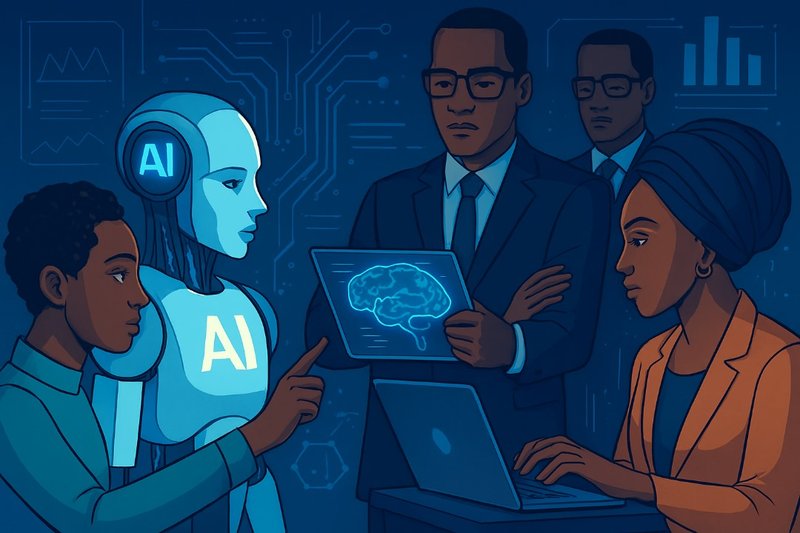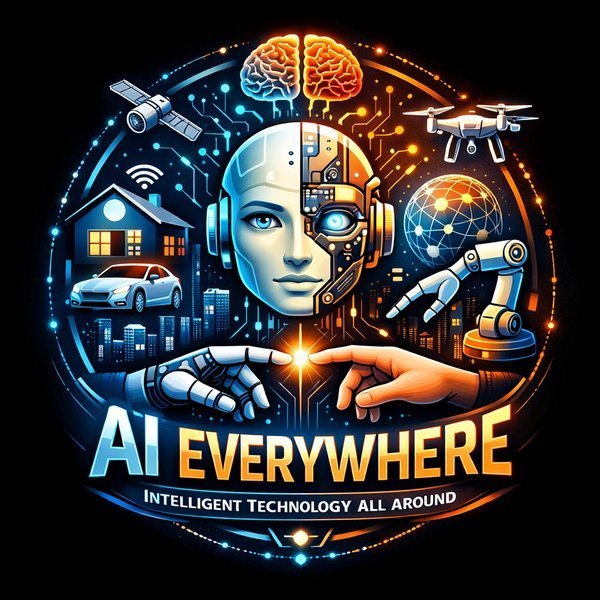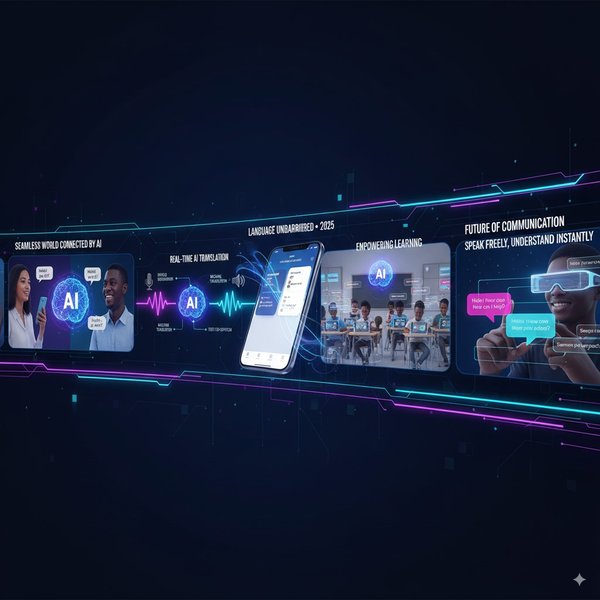Introduction: Africa’s AI Moment
Artificial Intelligence (AI) is no longer a distant buzzword—it is shaping how people live, work, and interact across Africa. From drones delivering medical supplies in Ghana to AI-driven mobile banking in Kenya, the continent is witnessing a wave of innovation. Yet, with this rapid growth comes a crucial question: How do we ensure AI benefits everyone without causing harm?
👉🏽 If you missed our earlier article on The Rise of AI in Africa’s Economy, read it here: AI in Africa’s Economic Growth.
What is AI Governance and Why Does it Matter?
AI governance refers to the rules, policies, and systems that guide how AI is developed and used. It answers questions such as:
- Who is responsible when AI makes a mistake?
- How do we prevent AI from reinforcing bias or discrimination?
- How do we protect citizens’ data and privacy?
- How do we ensure AI serves society, not just big corporations?
Without governance, AI can cause unintended harm. For example, facial recognition technologies are often less accurate for darker skin tones, as research from MIT Media Lab showed. Similarly, AI systems trained on foreign datasets may not reflect African realities, creating digital dependency instead of empowerment.
The Rise of AI in Africa: From Promise to Policy
AI adoption in Africa has been fast-paced in the past decade:
- Healthcare → Ghana’s Zipline drones deliver vaccines and blood to remote areas.
- Finance → M-Pesa in Kenya uses AI for fraud detection and customer support.
- Agriculture → Nigerian startups are building AI tools to detect crop diseases early, boosting food security.
- Education → AI tutoring platforms offer personalized learning for African students.
👉🏽 To dive deeper, check our blog on AI Transforming African Healthcare.
African Ethics and AI: A Unique Perspective
One of Africa’s greatest strengths is its cultural values. Unlike Western models that emphasize individualism, African philosophies like Ubuntu (“I am because we are”) highlight community, responsibility, and shared humanity.
If woven into AI governance, these values could help Africa avoid mistakes made elsewhere. For example:
- AI in healthcare could prioritize community well-being over profit.
- Algorithms in finance could emphasize inclusion—helping the unbanked, not just urban elites.
- Education-focused AI could ensure equal access for rural and urban students alike.
📖 For further reading: Ubuntu Ethics in AI – UNESCO Policy Paper.
Global Comparisons: What Africa Can Learn
Africa does not need to reinvent the wheel—it can learn from global efforts while adapting them:
- European Union (EU) → The EU AI Act classifies AI systems by risk (low, medium, high).
- United States → The NIST AI Risk Management Framework focuses on innovation-friendly policies.
- China → Strong government-led oversight shows how centralized policies can shape AI, though Africa must ensure transparency to avoid authoritarian misuse.
👉🏽 Compare this with our blog on Africa vs Global AI Policies.
Challenges to AI Governance in Africa
Despite the opportunities, several barriers exist:
- Limited policy infrastructure – Few African countries have formal AI strategies or regulations.
- Skills gap – AI talent is still scarce, making governance difficult.
- Data sovereignty – Much of Africa’s data is stored overseas, raising questions about control and privacy.
- Economic pressures – Governments may prioritize quick adoption over long-term safety.
- Public awareness – Many citizens are unaware of AI’s risks, making public participation in governance limited.
🔎 Learn more: African Union’s Digital Transformation Strategy.
Opportunities: Africa’s Path Forward
Africa is not starting from scratch. There are strong signs of progress:
- African Union (AU) → In 2022, the AU announced plans to develop a continental AI strategy.
- National AI strategies → Mauritius, South Africa, and Rwanda are leading with AI frameworks.
- Innovation hubs → Lagos, Nairobi, Accra, and Cape Town are becoming centers of AI research and startups.
- Youth-driven innovation → With Africa’s young population, there is a chance to build a new AI workforce.
👉🏽 Related read: The Future of Africa’s Digital Workforce.
The Role of Entrepreneurs, Students, and Policymakers
- Entrepreneurs → must integrate ethics into their AI products from day one.
- Students & researchers → can shape Africa’s AI future by focusing on context-specific solutions.
- Policymakers → need to engage diverse voices (tech experts, civil society, communities) when drafting AI laws.
📖 Case study: Rwanda’s AI for Healthcare Project.
Conclusion: Shaping Africa’s AI Future Together
AI is not just a technology—it is a mirror of society’s values. In Africa, this means AI should reflect Ubuntu, inclusivity, and shared progress. The continent has a chance to chart its own course, blending global best practices with local wisdom.
👉🏽 If you enjoyed this, continue your journey here: AI & The Future of African Innovation.




Comments (0)
Leave a Comment
No comments yet. Be the first to comment!